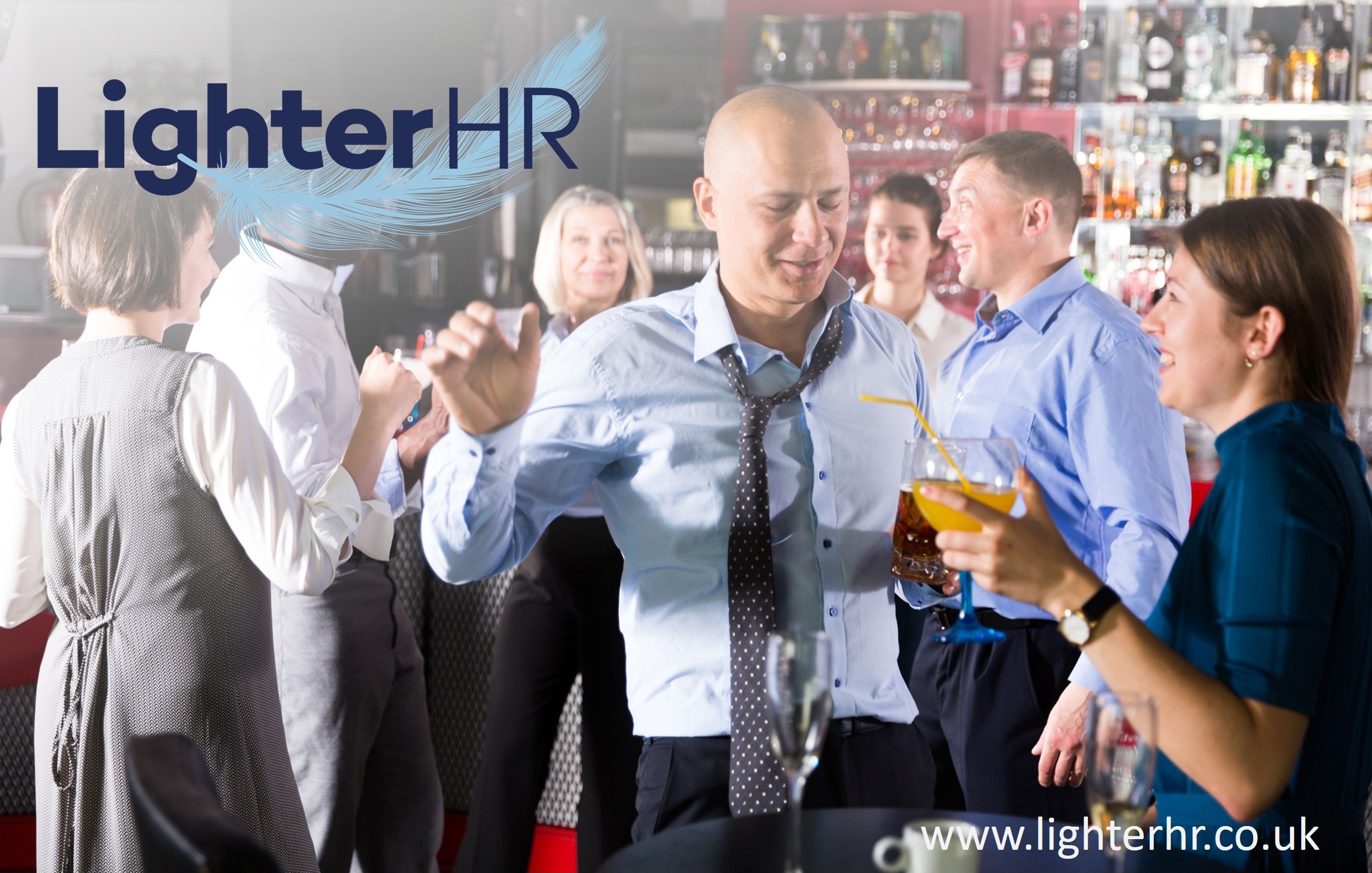Although “company liability at corporate events” isn’t the catchiest of titles, this is a subject that has come up for our clients. There has been an interesting case ruling that we think people should be aware of.
In this blog post, we’ll review the main points of the case ruling. We’ll cover what employers can do to minimise the risk of creating situations where things can go horribly wrong.
Managing a case of harassment can be challenging.
If you don’t handle a case correctly, even with the best intentions, you could exacerbate the situation rather than improve it, potentially leading to an employment tribunal.
If you receive an allegation of harassment, we strongly encourage you to seek support from an HR professional (preferably us!).
1. Is an Individual’s Behaviour the Responsibility of the Employer?
Here’s the scenario. It’s your annual summer party. It’s been a tough 6 months for everyone what with the cost-of-living pressures. Everyone has worked hard, and you want the team to enjoy a well-earned day off. You start with some Pimms before serving lunch. You follow that with wine with lunch. Then there are some team activities before pre-dinner drinks and more drinks with dinner.
People are very happy and relaxed but then some people start getting a little too relaxed! You notice some inappropriate touching going on. You know that a taxi has taken someone home due to them vomiting. But, they are all adults right? It’s not the company’s responsibility if people choose to drink too much, right?
Wrong!
A recent case ruling has clarified the rules around company liability at corporate events. The focus is particularly around employee actions that occur after excessive drinking at a company event.
2. The Case Against the Employer
The case that looks at company liability at corporate events was brought against Crest Nicholson. It saw a female employee (Employee Y) win a harassment claim against her employer after being raped by a manager after a Christmas party.
The Scenario
The scenario was very similar to that which is set out in section 1. The company provided a lot of alcohol to their employees over the course of the afternoon and evening.
A site manager, Employee X, became “touchy-feely” with a colleague, Miss V. A second site manager spoke with Employee X. He explicitly told him to stop being inappropriate and this second site manager was threatened with violence by Employee X. Miss V later lodged a formal complaint stating that Employee X had touched her bottom and breasts.
Employee Y did not witness any of these incidents.
She was staying in a hotel with some colleagues and following the event, got a taxi back to the hotel with Employee X. Employee Y stated that, at the time, she did not feel that he posed any threat to her personal safety. When they got into the taxi, Employee X tried to kiss Employee Y, and she rejected his advances.
Because Employee Y was very drunk, she could not consent to sexual activity. She woke to pain and found Employee X to be sexually assaulting her. She went to the police about the incident, but they did not have sufficient evidence to prosecute Employee X.
Resulting Issues
Employee Y reported the assault to Crest Nicholson who suspended Employee X and then ultimately dismissed him.
The assault continued to affect Employee Y’s mental health, causing her to take time off work due to depression. She resigned from her position in October 2020 and pursued a claim against the company.
You can find the full Employment Tribunal Decision on the government website.
3: What Employers Should Learn In Relation to Company Liability at Corporate Events
This is a complex case but there are some key elements of the judgement that we think are worth drawing to your attention in relation to company liability at corporate events.
Failing to Perform a Full and Thorough Investigation
The Respondent, Crest Nicholson, was criticised for not having completed a full and thorough investigation into the events of the Christmas party.
The judge writes “Although Mr Robb started each meeting by asking open questions of each of them, we consider that Mr Robb failed to explore and clarify a number of important matters. In particular, he failed to establish a clear chronology of events.”
If you find yourself facing allegations of inappropriate conduct at company events, do make sure that you take them seriously. You should conduct a full and thorough investigation.
Lack of Awareness and Understanding of Dignity and Respect
The judge commented on Miss V’s testimony where she stated that many people had witnessed Employee X’s inappropriate behaviour towards her and had found it funny.
The judge wrote “That is a particularly troubling observation as it would indicate a basic lack of awareness and understanding of dignity and respect amongst certain members of the Respondent’s staff.”
You need to act swiftly when you observe unacceptable behaviour and provide training to all employees about dignity and respect in the workplace.
Employer’s Duty of Care and Company Liability at Corporate Events
Employers have a duty of care towards their employees. The judge in this case concluded that Crest Nicholson failed in this regard.
He writes “In our judgment, an employer has a responsibility to act pro-actively, rather than reactively, to identify and safeguard against risks to the health, wellbeing and safety of its staff. The Christmas party started at 1pm and continued late into the evening. Throughout, unlimited free alcohol was seemingly available to the attendees. Mr Varnam, not unreasonably, describes the party as an alcohol-fuelled event. Making alcohol freely available to employees at a party that extends over many hours self-evidently carries risks. Even if it might be suggested that a formal risk assessment would have been disproportionate, it would have been a simple matter for a light touch communication to have been issued by the Respondent to attendees ahead of the event, encouraging them to enjoy themselves but also reminding them of the standards of behaviour expected of them.”
There are two key points we’d like you to take from this element of the judgement.
- Firstly, providing lots of free alcohol to employees is not a good idea. Place some limits on the quantity and type of alcohol you’ll provide and put appropriate safeguards in place.
- Secondly, do make sure you have a Professional Conduct Policy in place that covers expected standards of behaviour at company events and be sure to remind people of this ahead of each celebration.
Want to Know More or Need Some Help?
We really hope that you don’t ever need to deal with a situation as serious as this one. Hopefully, now you have some clarity around company liability at corporate events you take steps to ensure you don’t. However, if things do go wrong and you face issues after a company event or, if you’d like to explore ways to prevent such issues arising, please do give us a call on 0203 535 5750 or contact us using the contact form.
Need HR Support?
Whatever your challenge, we’re here to help. Get in touch and we’ll guide you to the right support for your business.




